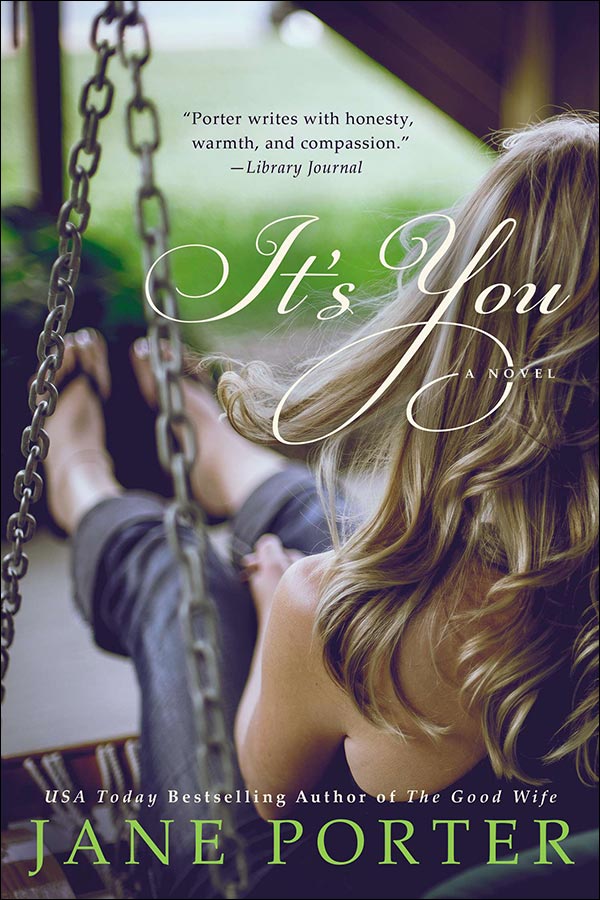A book extra for It’s You
When and how did you get the idea for It’s You?
I was already writing the story—telling Allie’s story—when I went to Berlin for the German Love Letter Convention in Berlin in May 2014. I hadn’t been back to Berlin since the late 70’s when the wall still divided the city so my memories of Berlin were of a city divided, and Check Point Charlie. But the Berlin I discovered was altogether different, and new….and old. It was a city reborn. Old and new. Battered. Scarred. Beautiful. As you can tell, I was profoundly moved by the vibrant culture and the vigorous growth and rebirth of Berlin. I felt the city and its history within me and from there, Edie and her love for Berlin was born.
Why did you choose to set the story into this historic context?
My father was a professor and his area of expertise was WWII. He wrote a play based on the Trials at Nuremburg and as many of my readers know, my family lived outside of Nuremburg in the late 70’s, and we traveled extensively throughout Germany, with visits to Berlin, too. I also have many German relatives, most from Bavaria, and grew up listening to my grandmother talk about her parents who were both German immigrants. You can’t help but have be sensitive to history, when one is so immersed in place and story.
Did you research, or just use family stories?
Family memories, university history courses, and my own travel laid a foundation, but then I had to really dig into the story. Fortunately, I love research. I am the daughter of a professor, my great-grandfather was a professor, my brother is a professor, numerous cousins hold doctorates, so academia is king and research is the backbone of everything, and the best place to begin one’s research is with source documents. After my Berlin trip, I spent months just reading, reading, reading, adding layers to what I knew, giving my story more depth and breadth. I wasn’t able to use 90% of what I learned in the story, but it was important to me to have that 90% available to make sure I was capturing as much the facts as the emotional/psychological truth.
What were those source documents?
I am a big believer in going straight to first person accounts whenever possible. I have always written this way and search out diaries, memoirs, newspaper articles, radio/podcasts, magazine articles, cookbooks, travel journals…anything that gives me a sense of people, place and time.
Several of the most amazing books I read on Berlin during the war years were from my father’s collection: Berlin Diaries by Marie Vassiltchikov, Berlin Diary by William Shirer, Berlin Embassy by William Russell. And then I added to the collection with dozens of noteworthy accounts I found, including, Stauffenberg by Peter Hoffman, The Power of Solitude by Marion Yorck von Wartenburg, A Good German: A biography of Adam von Trott zu Solz by Giles MacDonogh, When I Was a German by Christabel Bielenberg, and An American Island in Hitler’s Reich: The Bad Nauheim Internment by Charles Burdick.
There are many more, too, which you can find in the Recommended Reading List for interested readers.
WARNING: The following questions and answers contain spoilers for those who haven’t yet finished the book!
How did Elizabeth and Torsten meet for the first time? How did they become a couple? I remember a jump in the plot: Elizabeth studied at the Hoch, then suddenly was in Berlin, working for the embassy.
There is a deliberate vagueness to some things in the story since readers are learning via bits of diary and conversation, and internal monologue. It is left to the reader to understand how Edie and Torsten met….an embassy function? Drinks at the Adlon? Perhaps at the opera? I personally know, but I’ve learned that after the book is finished, I can’t go back in and fill in details for readers. It creates problems. I must now leave it to the reader. How and where do you think they met?
Andrew’s death: In the beginning, the mysterious circumstances of Andrew’s suicide were the dominant question for the reader. Did he have a bipolar disorder? Was there any hint / former conversation between him and his father (or Alison), that could have let to finally committing suicide?
I can’t tell you why Andrew is gone. He didn’t leave a letter, or a diary, or emails. He didn’t leave a clue. His family was baffled. Allie was baffled. Those in his world were left confused. They don’t have his point of view, so we readers do not have it, either. Yes, it would be more satisfying as reader to know why…but we don’t. And that is true in life. We don’t always know why. We don’t get the answers. Instead we must somehow cope with things we don’t understand. We are forced to adapt, accept, adjust. And then move forward.
Looking ahead, will you write more books with a historical context?
I’m just starting a new book now, and it too, has a historical framework but I’m not sure how much will show up on the page. I make those decisions as I do the deep writing, but in general historicals are very comfortable for me. My MA project was a historical novel, set in the Middle Ages. I’ve always loved history. My father was a history professor. I was an American Studies major at UCLA earning a degree in American Lit & American History, so mixing literature and history is the most natural way of writing for me. Even my contemporary women’s fiction books are still modern historicals…telling women’s story in the current culture and place and time, but being very true to what is real ‘now’.




